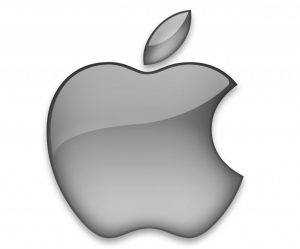 Apple Inc. (NASDAQ:AAPL) has officially filed a lawsuit against Qualcomm Inc. (NASDAQ:QCOM) alleging unfair business practices. The suit was filed Friday in federal district court in the Southern District of California. Apple is alleging that the chip supplier is demanding unfair terms for using its technology. The lawsuit is an escalation of the long-simmering tension between the companies. Apple said in a statement that the action comes “after years of disagreement over what constitutes a fair and reasonable royalty.”
Apple Inc. (NASDAQ:AAPL) has officially filed a lawsuit against Qualcomm Inc. (NASDAQ:QCOM) alleging unfair business practices. The suit was filed Friday in federal district court in the Southern District of California. Apple is alleging that the chip supplier is demanding unfair terms for using its technology. The lawsuit is an escalation of the long-simmering tension between the companies. Apple said in a statement that the action comes “after years of disagreement over what constitutes a fair and reasonable royalty.”
Both companies are at the heart of the global smartphone industry. Qualcomm has a monopoly position as a manufacturer of baseband chips, a critical component used in cellphones. The San Diego-based company has developed numerous patents around that technology. Those patents account for most of its pretax profit.
In its complaint, Apple says that Qualcomm uses the requirement that manufacturers must agree to license its patents to get Qualcomm chips to secure royalty terms that manufacturers “would not otherwise accept.” For Apple, the terms gave Qualcomm as much 5 percent of the average price of an iPhone. Qualcomm would collect the same royalty percentage even as Apple added elements aside from the chips that increased the iPhone’s value.
The complaint also claims that Qualcomm blocked Apple’s ability to choose another supplier for chipsets. Apple says Qualcomm required it to exclusively use its chips in iPhones from at least 2011 to 2016. Apple was supposed to receive quarterly rebates from Qualcomm under the agreement.
Apple claims Qualcomm withheld nearly $1 billion in rebate payments as retribution for Apple’s participation in an investigation against it. The suit claims Qualcomm told Apple it had forfeited the rebates by responding to the Korea Fair Trade Commission. South Korea’s antitrust regulator fined Qualcomm roughly $853 million last month for alleged anticompetitive patent-licensing practices. Qualcomm disputed the findings that led to the fine and vowed to fight the decision. Apple’s complaint requested that the court compel Qualcomm to make those payments.
For years, competitors and customers have complained about Qualcomm’s licensing practices. Qualcomm responds that it has never withheld or threatened to withhold its chips to gain unfair licensing terms. The company also claims that its licensing model is the most efficient approach and benefits the entire industry.
The U.S. Federal Trade Commission sued Qualcomm three days ago over allegations of engaging in unlawful tactics to maintain a monopoly. The FTC suit highlighted Qualcomm’s dealings with Apple. Qualcomm said last week that it would fight the FTC’s suit, claiming it is based on inaccurate information.
